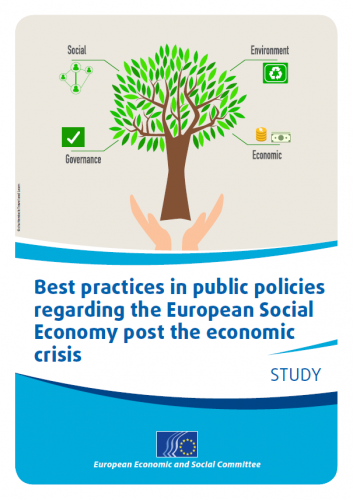Since the end of last decade, several institutions of the European Union have called for public policies to boost the social economy at the European, national and regional levels. A major statement has been the Conclusions of the European Council, published on 7 December 2015, on The promotion of the social economy as a key driver of economic and social development in Europe. Another former official statement was the ‘Toia Report’ approved in 2009 by the European Parliament. The European Economic and Social Committee (EESC) also approved several Opinions to enhance the Social Economy during this period. All these developments reflect that social economy is finding its place as a constituent part and pillar of the European Social model and as a cornerstone of sustainable socio-economic development.
Download Best practices in public policies regarding the European Social Economy post the economic crisis
Download the Executive Summary
In this context and also in the context of the last crisis, a new generation of public policies for the social economy have emerged during this decade. Several governments at EU, national and regional levels have deployed innovative policies around Europe to boost the development of this socioeconomic sector. Notwithstanding the previously mentioned, it is true that the inclusion into public policies of different types of social enterprises has been a widespread practice for decades. This latter fact has been more visible in sectorial policies such as agricultural and rural development policies, active employment policies aiming at reducing social exclusion and territorial planning policies, urban regeneration and local development policies for instance. All of these policies have associated social economy actors in their implementation.
The present research outlines a diversified selection of successful practices in public policies regarding the Social Economy across different European countries.
Table of Contents
Forewords
Preface
1. Introduction and objectives
2. Case studies of successful public policies fostering the social economy in Europe
3. Main institutional obstacles to the development of the European social economy
4. Conclusions: challenges of social economy policies
Bibliography
SOURCE: European Economic and Social Committee
Format
Source





